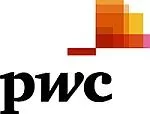Background
On 18 November 2020, the Central Bank of Nigeria (CBN), issued a follow up circular further to its earlier notice of 24 August 2020, which directed authorised dealers against issuing Form Ms for imports where payments were not made directly to the ultimate supplier. Read our earlier alert here.
The New Circular clarifies that "Ultimate Supplier of Products (or USP)" means "the direct party selling the goods to the importer irrespective of whether the party involved is the manufacturer or internationally recognised buying company/ supplier/agent"
Requirements
The Circular also states the following:
- The name of the USP should be the same as the beneficiary on the Form M, invoice, Bill of exchange, Letter of Credit instrument and all other relevant documents;
- Authorised dealers should make payments only to the USP;
- Where the Nigerian importer has to transact through a Buying Agent ("BA"), the BA will need to provide the underlisted documents to the importer, for presentation to the CBN before a Form M can be opened:
-
- Detailed KYC and profile of BA;
- 3-Year audited financial statements of the BA;
- Letter of reference from the BA's banker;
- Relevant Transfer Pricing information;
- Registration with BA's home country's Chamber of Commerce;
- Evidence of tax payments in the home country; and
- Evidence of authorisation to act as agents and/or distributor to the original equipment manufacturer.
Analysis and conclusion
The recent CBN circulars on the foreign exchange regime for imports are being issued as part of the apex bank's efforts to curtail the strain on the country's foreign exchange reserve.
The New Circular is expected to ease the restriction earlier imposed, especially from the perspective of Nigerian manufacturers and other businesses that have to import raw materials and other relevant commodities.
It address most of the concerns that followed the previous CBN notice, and gives the opportunity for customers in Nigeria to make use of BAs where requisite conditions are met.
It is expected that the requirement to provide the listed documents will reduce the incidence of abuse of forex access, and ensure that customers with legitimate arrangements are not adversely affected.
One question that arises is whether the requirement to provide Transfer Pricing documentation is necessary where the BA is not a related party to the Nigerian customer. It is also not clear if the CBN will collaborate with the Federal Inland Revenue Service to determine the appropriateness of such TP documentation.
It is expected that the CBN will continue to welcome feedback from stakeholders to further refine the rule as may be necessary in order to achieve stated objectives without hampering legitimate business arrangements.
Download CBN Desination Payment Circular_18Nov2020
The content of this article is intended to provide a general guide to the subject matter. Specialist advice should be sought about your specific circumstances.


